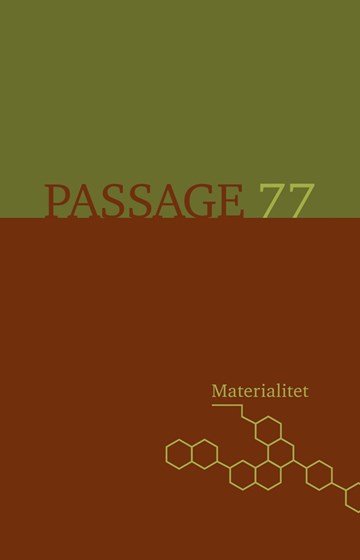Tinglysning. Who cares i Peter Adolphsens roman “Brummstein”?
DOI:
https://doi.org/10.7146/pas.v32i77.97041Nøgleord:
omsorg, kausalitet, Peter Adolphsen, litteraturkritikResumé
Søren Langager Høgh: “Tinglysning* – Who Cares in Peter Adolphsen’s novel Brummstein (2003)?”
Focusing on the concept of care (including matters-of-care, ethos of care, care giver/care taker, cute [kær], sorrow, diligence and the new term GeoWei) this paper argues that Peter Adolphsen’s novel Brummstein (2003) is a speculative accomplishment in the politics of causality. The main trajectory of the novel focuses on a stone that is given the necessary space to be included in the Social, which we in an uncaring world view tend to reserve for humans. Based on Maria Puig de Bellacasa’s reading of Bruno Latour’s notion of matters-of-concern, I propose to interpret the role text is given in the practice of caring for neglected things in Brummstein as a quality of literature.
* “Tinglysning” is a old Danish word used in present language of property law, meaning both 1) land registration, 2) to shed light on the thing and 3) to shed light on a concern in a political gathering i.e. literally to make things public
Downloads
Publiceret
Citation/Eksport
Nummer
Sektion
Licens
Forfattere, der publicerer deres værker via dette tidsskrift, accepterer følgende vilkår:
- Forfattere bevarer deres ophavsret og giver tidsskriftet ret til første publicering, samtidigt med at værket efter publiceringen er omfattet af en Creative Commons Attribution-licens, der giver andre ret til at dele værket med en anerkendelse af værkets forfatter og første publicering i nærværende tidsskrift.
- Forfattere kan indgå flere separate kontraktlige aftaler om ikke-eksklusiv distribution af tidsskriftets publicerede version af værket (f.eks. sende det til et institutionslager eller udgive det i en bog), med en anerkendelse af værkets første publicering i nærværende tidsskrift.
- Forfattere har ret til og opfordres til at publicere deres værker online (f.eks. i institutionslagre eller på deres websted) forud for og under manuskriptprocessen, da dette kan føre til produktive udvekslinger, samt tidligere og større citater fra publicerede værker (se The Effect of Open Access).





